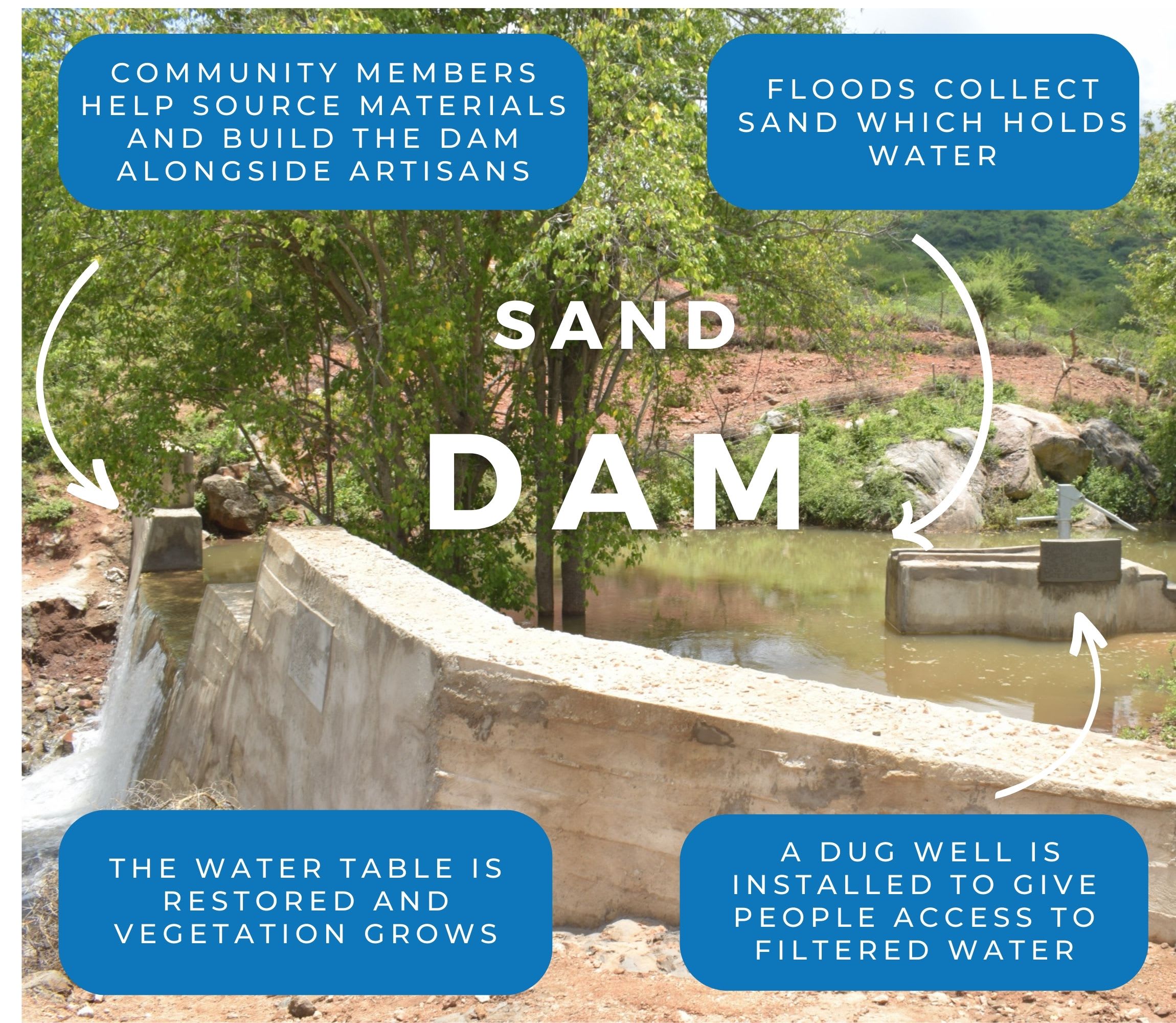Failure by successive governments to develop this region of Kenya has led to locals working hard on their farms to provide food on the table for their children and grandchildren.
Erratic rainfall patterns can't guarantee water for communities all year round as most rivers in the entire Makueni County are seasonal. Sand dams would, therefore, harvest rainwater where it falls and makes it available to the community up to the next rain season. Accompanying wells will ensure people can collect water safely.
Mbakoni Community is found along the border of Makueni and Machakos Counties. The dominant activity here is farming with the majority of people owning small pieces of land where they grow maize, beans, and other cereals.
The community group is found in a peaceful rural area with significant tree coverage made of both exotic and indigenous trees. The area is hilly with steep slopes making part of the footpaths and roads linking up to the area. Many households have decent houses made up of bricks and roofed with iron sheets.
Water
The water sources for the community are open scoop holes found on a riverbed. The water is not safe for drinking - it is an open source with a thoroughly dirty appearance.
The scoop holes do not provide enough water all year round and often dry up in periods of prolonged drought which exposes the locals to water scarcity and a myriad of disease conditions.
Some members of the community boil water before its use while others use it without any prior form of treatment.
"Failure to tap on rainwater has led to perennial water problems in our area, this has subsequently led to low levels of hygiene and sanitation, we hope to improve our conditions by working on numerous water projects within our locality," John Mutio said.
Sanitation
The majority of homes in the community have latrines, but many are made of unsafe mud floors. The chances are high that some latrines have been affected by the ongoing rains, leading to their collapse.
What we plan to do about it:
Our main entry point into Mbakoni Community has been the Kyambasa Self-Help Group, which is comprised of 30 farming households that are working together to address water and food scarcity in their region. These members will be our hands and feet in both constructing water projects and spreading the message of good hygiene and sanitation to everyone.
Training
We’re going to train Mbakoni Community on hygiene and sanitation practices. Though our visits to households were encouraging, we want to ensure that community members are practicing the day to day habits we’re not able to observe. Food hygiene, water hygiene and treatment, personal hygiene and hand-washing will all be a focus during our sessions together.
Sand Dam
Building this sand dam at a spot along the sandy riverbed will bring water closer to hundreds of people. After the community picked the spot, our technical team went in and proved the viability by finding a good foundation of bedrock. Now, our engineers are busy drawing up the blueprints. We estimate the dam will be 29.6 meters long and 6.3 meters high.
As more sand dams are built, the environment will continue to transform. As the sand dams mature and build up more sand, the water tables will rise. Along with these sand dams, hand-dug wells (check out the hand-dug well being installed next to this dam) will be installed to give locals a good, safe way to access that water.
With these projects, clean water will be brought closer to hundreds living around Mbakoni, including Mr. Musau's family.
This project is a part of our shared program with Africa Sand Dam Foundation. Our team is pleased to provide the reports for this project (edited for clarity) thanks to the hard work of our friends in Kenya.

 Sand Dam
Sand Dam
 Rehabilitation Project
Rehabilitation Project


































